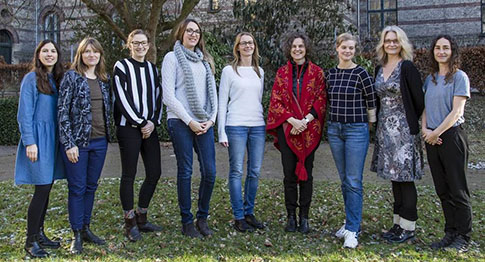Personalized Medicine in the Danish Welfare State
(MeInWe) explores how strategies of tailoring diagnosis, treatment and prevention to individual genetic variability challenge existing ethical, organizational and regulatory frameworks in medicine.

The project asks two central questions:
- How is “the personal” understood and established when genomic data are applied and exchanged in Danish health care?
- Which collectivities—e.g. species, ethnicity, nation, health care services, and ultimately the welfare state— are implied in constituting “the personal”?
With these questions MeInWe critically assesses how strategies of personalized medicine draw boundaries around the person (the me) and how collectivities (the we) are shaped and negotiated in creating knowledge about the individual. By empirically investigating the introduction of whole genome sequencing in specific sites of research, clinic and patient lives, MeInWe examines and actively contributes to discussions of how personalized medicine introduces new ways of understanding and approaching health and disease.
The project is supported by the Carlsberg Foundation with 15 M DKK over the period September 2017 to June 2024.
The core group serves the function of an advisory board. It consists of the following four persons:
Professor emerita Lene Koch
Department of Public Health, University of Copenhagen
Professor Klaus Høyer
Department of Public Health, University of Copenhagen
Professor Mette Hartlev
Centre for Legal Studies in Welfare and Market, Faculty of Law, University of Copenhagen
Professor Andreas Roepstorff
School of Culture and Society, University of Aarhus
